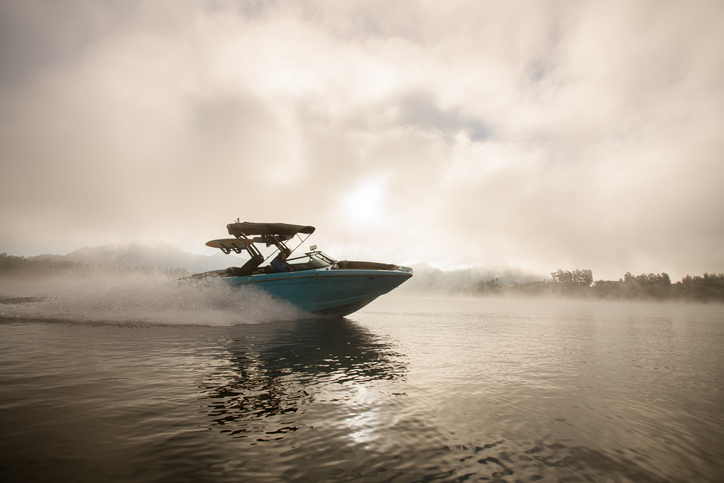Factors Leading to Boating Accidents
Boating is a popular recreational activity in Texas. As such, boating accidents occur and can arise from a variety of factors. Some of the common causes of boating accidents might include the following:
- Human Error
- Inexperience: Lack of knowledge or familiarity with boating rules and regulations.
- Distraction: Not paying attention to the surroundings, other vessels, or onboard activities.
- Impairment: Operating under the influence of drugs or alcohol.
- Poor judgment: Making rash decisions or taking unnecessary risks.
- Equipment Failure
- Mechanical failure: Malfunctions in the boat’s engine, steering, or other main components.
- Hull damage: Leaks that can lead to flooding or sinking.
- Equipment misuse: Not using equipment as intended or not maintaining equipment properly.
- Safety equipment failures: Malfunctions in life vests, fire extinguishers, or other safety gear.
- Environmental Factors
- Weather conditions: Storms, high winds, and lightning can create treacherous conditions.
- Rough waters: Waves, strong currents, or tides that make navigation difficult.
- Obstructions: Rocks, logs, or other debris in the water.
- Limited visibility: Due to fog, rain, or nighttime conditions.
- Operational Decisions
- Speeding: Operating the boat at unsafe speeds, especially in crowded or restricted areas.
- Improper anchoring: Not securing the boat correctly or in safe locations.
- Overloading: Carrying more passengers or cargo than the boat can safely hold.
- Lack of communication: Not communicating your movements with the other vessels on the water.
- Lack of Safety Measures
- No life jackets: Not wearing or having enough life jackets on board.
- Inadequate safety equipment: Lack of flares, first aid kits, or emergency communication devices.
- Poor boat maintenance: Not regularly inspecting and maintaining the boat, leading to unexpected issues.
- Collisions
- With other boats: Not observing right-of-way rules or not being attentive.
- With fixed objects: Hitting docks, piers, buoys, or underwater obstructions.
- Grounding: Running the boat aground on sandbars, shores, or shallow waters.
- Capsizing or Falling Overboard
- Unstable boats: Using boats that are not suited for specific water conditions.
- Sudden movements: Quick turns or passenger movements can cause instability.
- Fire or Explosion
- Fuel leaks: Leaks or spills from fuel systems can ignite.
- Electrical issues: Faulty wiring or equipment can cause sparks.
- Poor ventilation: Build-up of fumes can lead to explosions.
- Other Causes
- Wildlife interactions: Dangerous encounters with marine animals.
- Towing accidents: Issues related to towing water skiers, tubers, or other vessels.
- Diving accidents: Collisions or injuries related to divers in the vicinity.
The risks of the above types of accidents can be significantly reduced by promoting boating safety through education, proper equipment, and attention to environmental factors.
Legal Remedies In Texas If You Have Been Involved In A Boating Accident
In Texas, as in many places, if you are involved in a boating accident, there are several potential legal remedies depending on the circumstances of the incident. Here are some general options that might be available to victims of boating accidents:
- Personal Injury Claim: If you are injured due to another person’s negligence while on the water, you might be able to pursue a personal injury claim against the responsible party. A boat accident victim must prove that his or her injuries were the direct result of another party’s breach of their duty of reasonable care. If negligence is proven, you could be entitled to compensation for medical bills, lost wages, pain and suffering, and emotional trauma. These remedies hold true regardless of whether the accident occurs aboard a private boat, luxury commercial vessel, or even a jetski.
Parties that may be held liable for boating accidents can include another boat driver, a boat owner, a manufacturer or an employer.
- Wrongful Death Claim: If a loved one dies in a boating accident due to someone else’s negligence, surviving family members might be able to bring a wrongful death claim to recover damages for things like funeral expenses, lost wages, and loss of companionship. As far as Federal law, the Death on the High Seas Act creates a wrongful death claim for families of deceased sailors if the sailor was killed by negligence on international waters.
- Property Damage Claim: If your boat or personal property is damaged in an accident, you might be able to pursue a claim for the cost of repairs or replacement.
- Violation of Boating Laws: Texas has specific boating laws, and if someone violates these laws and causes an accident, they could even face criminal penalties. For example, Section 49.06 of the Texas Penal Code addresses boating while under the influence. Just like normal DUI laws in Texas, it is illegal to operate a boat if a blood alcohol level is 0.08 or more. Violators can face fines, jail time, and loss of the right to operate a boat.
Other Texas laws which might be relevant are the Texas Water Safety Act (which is included in the Texas Parks and Wildlife Code): 1) Section 31.109 of the Texas Parks and Wildlife Code requires boater education courses; 2) Section 31.105 of the Texas Parks and Wildlife Code requires accident reports, and 3) Section 31.104 of the Texas Parks and Wildlife Code addresses the duties of boat operators.
- Insurance Claims: Depending on the insurance coverage you or the responsible party has, you may be able to file a claim with the insurance company to cover some of the damages from the accident.
- Maritime or Admiralty Law: In some cases, if the accident occurred on navigable waters, federal maritime or admiralty law might apply. Just as an example, under Federal law, the Death on the High Seas Act creates a wrongful death claim for families of deceased sailors if the sailor was killed by negligence on international waters. Maritime law can be complex, so it’s advisable to consult with a lawyer experienced in maritime law if you think it might be relevant to your case. Ceja Law Firm has extensive knowledge in the area of maritime law.
The Attorneys at Ceja Law Firm Help Those Who Have Been Involved in Boating Accidents
Promoting boating safety through education, proper equipment, and attention to environmental factors can significantly reduce the risk of these boating accidents. However, if you or a loved one does become involved in a boating accident, contact Ceja Law Firm, PLLC. We are Texas attorneys experienced in personal injury and maritime law and can help you understand your rights and the best course of action for your situation.











